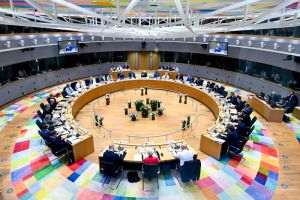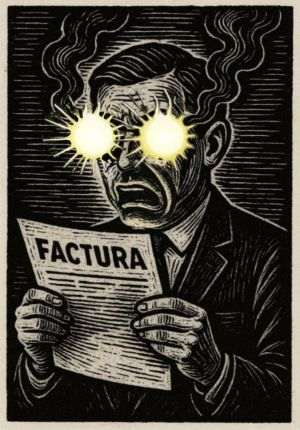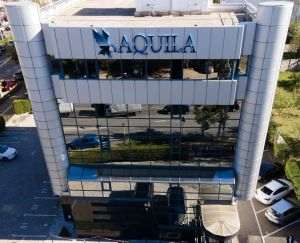The way in which Brussels officials seek to create all kinds of legislative artifices aimed at allowing derogations from the Treaty on the Functioning of the Union, in order to allow the allocation of funds for common European armament purposes for Ukraine, is undemocratic in the opinion of Maria Zakharova, spokeswoman for the Ministry of Foreign Affairs of the Russian Federation.
In a post on the official pages on the X and Telegram networks, Maria Zakharova writes: "Josep Borrell High Representative of the European Union for Foreign Affairs: "We cannot let Russia win this war. Otherwise, the interests of the United States and Europe will suffer greatly. It's not just about generosity. It's not about supporting Ukraine because we love Ukrainians. This is in our own interest. And it is also in the interest of the United States as a global player - one that wants to be seen as a responsible partner for its allied security». For the first time, a representative of the Western regimes spoke so openly about the essence of what is happening. It is not a matter of "love for the Ukrainians", whom the Westerners practically destroyed, and out of the desire of the United States to maintain its hegemony, to maintain its fading role in world affairs. There is no trace of creativity left in the American approach to international relations. Liberal Democrats only know how to destroy, believing that this ability is a guarantee of dominance. And the task of the European Union in the current stadium is to provide as aid to Ukraine the necessary cartridges from the money of its own citizens, whose opinion was not asked by anyone".
It is curious how a Russian official suddenly becomes attentive to the preservation of democracy within the European Union, to respecting the opinion of the citizens of the states regarding the very close commons of armaments to be sent to Ukraine, but does not actually take into account that before the invasion of Ukraine in On February 24, 2022, President Vladimir Putin did not ask the citizens of the Russian Federation if they wanted to go to war, but only announced that he had launched a special operation in the neighboring country.
It seems that adherence to democratic rules is good for the Kremlin authorities only when it is about Western states, not when we are talking about military or political actions of President Vladimir Putin and his cronies.
• The profit of the frozen Russian assets would be used by the EU for the purchase of armaments
However, we cannot fail to notice that in the last official positions of Brussels, they were in favor of a mechanism intended to lead to joint services in the military field in favor of Ukraine.
Thus, in the speech on the State of the Union delivered by Ursula von der Leyen, the president, at the end of February in the European Parliament, the head of the Community Executive said that the profits obtained from the frozen Russian assets should be used in the Military Equipment Commission for Ukraine. .
"There could be no stronger symbol and better use for this money than to make Ukraine and all of Europe a safer place to live," von der Leyen said.
The idea of the president of the European Commission was taken up by the members of the European Council, so that at the summit of 21-22 March 2024 they reached an agreement in principle to requisition or a large part of the exceptional profits generated by the frozen Russian assets and give them to Ukraine. The deal comes after nearly a year of negotiations over the legal basis for the effective seizure of euro190 billion held in the Belgian central securities depository Euroclear.
An agreement was reached after the wording of the text was changed to meet the objections of Hungary, which opposed the money being used to arm Ukraine. However, although how the funds will be divided has not yet been decided, the proposal is to use 90% (euro3 billion per year) for military programs and 10% for reconstruction.
Hungary has said it will oppose the European Commission's plan to use 90 percent of the profits from Russia's frozen assets to buy arms for Ukraine.
Prior to the agreement reached by the European leaders, the European Commission presented the first European defense industrial strategy at the EU level at the beginning of March. Member States are invited to donate at least 40% of the equipments defense collaboratively by 2030, ensure that by that time the value of intra-EU defense trade represents at least 35% of the value of the EU defense market, make steady progress towards the acquisition of at least 50% of their defense procurement budget within the EU by 2030 and 60% by 2035.
The European Defense Industry Program (EDIP) will mobilize euro1.5 billion from the EU budget in the period 2025-2027, and a large part of that sum will go towards the production of shells, which are needed on the battlefields of Ukraine .
Moreover, on March 15, the European Commission already allocated 500 million euros to companies in the EU defense industry, in order to increase the production capacity of ammunition, the additional production will provide Ukraine with more artillery projectiles and restore the depleted stocks of the states European, according to the press release issued by the Community Executive. Within the ASAP (Act in Support of Ammunition Production) funding scheme, between 2.1 and 47 million euros can be granted for the 31 projects coordinated by major companies in the defense industry, including Rheinmetall , Nammo, Chemring Nobel, Hellenic Defense Systems or Eurenco.
The financing of the respective projects will generate additional investment from the industry through co-financing, resulting in a total investment of approximately euro1.4 billion in the supply chain. ASAP focuses on the production of powder and explosives, areas that will receive three quarters of the allocated amount. The program will support projects to increase the annual production capacity by more than 10,000 tons of powder and by more than 4,300 tons of explosives. To this end, the Union will invest 248 million euros in powder production capacity and 124 million euros in explosives manufacturing capacity.
The European defense industry will thus be able to expand its ammunition production capacity to two million shells per year by the end of 2025, part of which will be delivered to Ukraine. Thanks to the measures already taken, the European annual production capacity for 155 mm shells had already reached 1 million shells in January 2024.










































